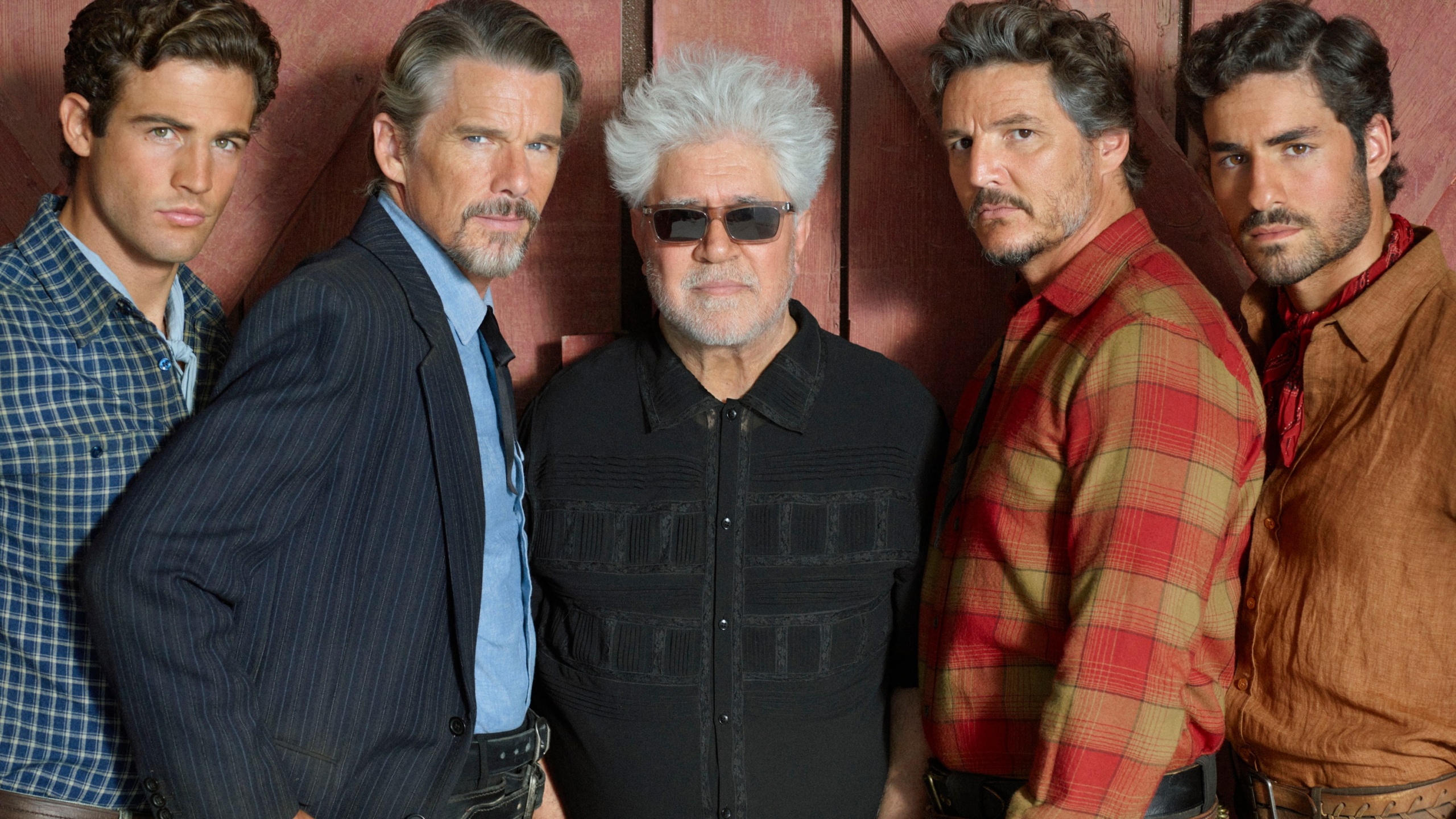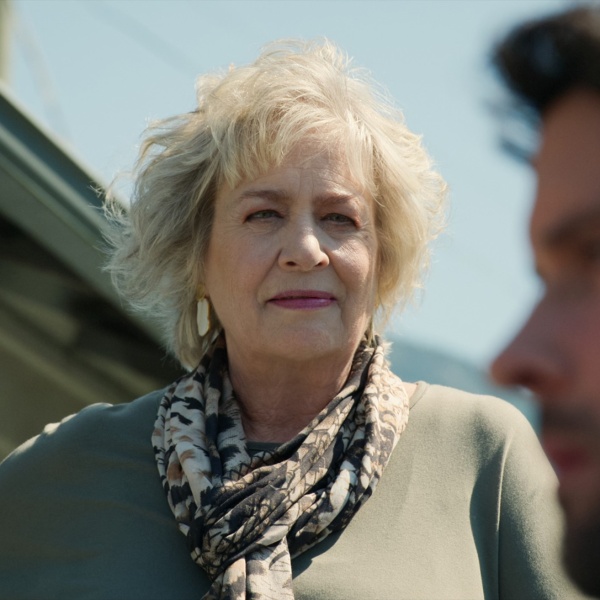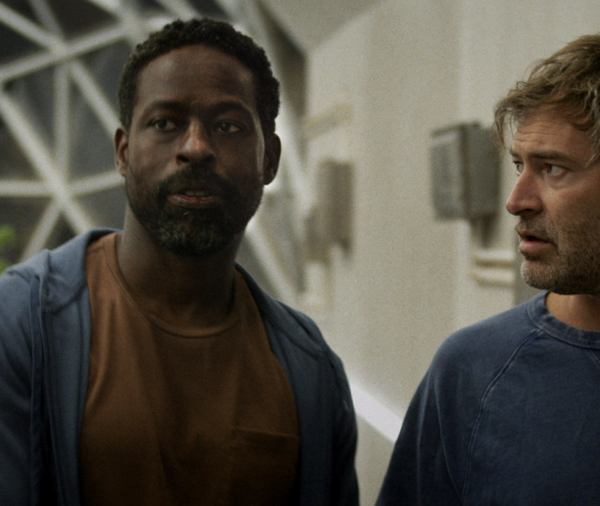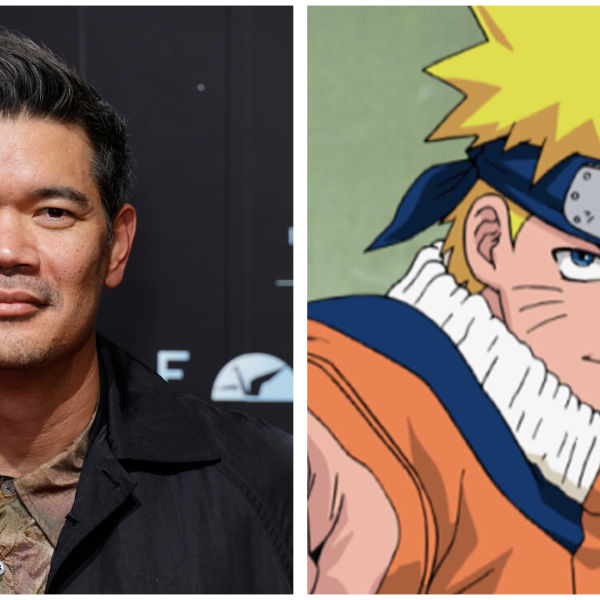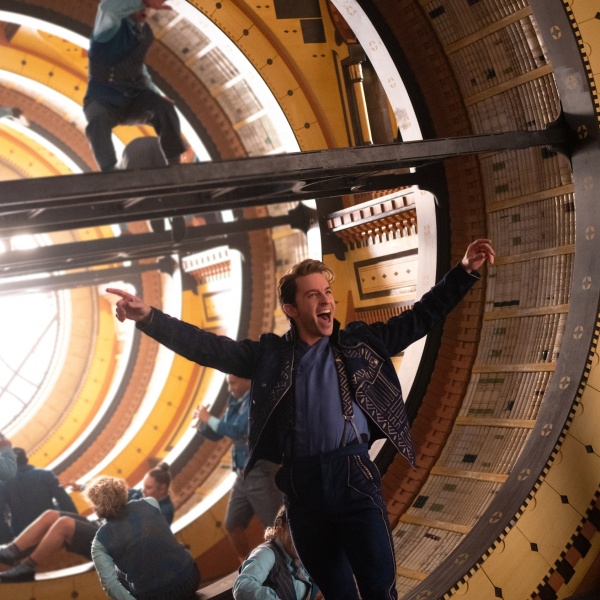Pedro Almodóvar has been dancing with the idea of directing an English-language movie for decades, but he’s closer than ever to getting there. “I think I’m going to make it sooner or later,” the Spanish filmmaker told IndieWire over Zoom from his apartment in Madrid earlier this month. “I should be more honest about knowing my conditions.”
That admission comes a few months after “A Manual for Cleaning Women,” the adaptation of the Lucía Berlin short stories that Almodóvar spent years hoping to make, fell apart a matter of months before production was set to begin with Cate Blanchett. A series of complications led Almodóvar to cancel the production, leaving the rights to the project with Blanchett’s production company.
Now, Almodóvar is resurfacing with another toe-dip into English with “Strange Way of Life,” a touching gay Western short starring Ethan Hawke and Pedro Pascal that follows his first English-language effort, the Tilda Swinton short “The Human Voice,” in 2020. Almodóvar beamed about his new project, and already has two more brewing, but the collapse of the one he had planned to do next still irks him.
“Even now, it’s very painful for me to think about,” he said. “I had discussed it with Cate the whole year. I had a lot of time to reflect on it. I was not afraid of the languages. I was afraid of the many locations, the many actresses. I was not sure about the time they would give me to rehearse.”
Because the movie was a Spanish production, he would have been forced to recreate many of the American scenes at a soundstage in Madrid, a process made especially demanding because the director micromanages every detail of each frame. “That frightened me,” he said. “I just thought of myself having to supervise everything in a larger studio and thought it would be a nightmare. I knew the more honest thing for me to do was to write Cate and tell her that I was very sorry, but I couldn’t make it.”
Having hyped the plan himself for over two years, he sounded distraught over the outcome. “I know it’s my fault,” he said, unprompted. “Perhaps I could have thought of this earlier, but you know, I didn’t have that much time.”

That’s the upside to the whole ordeal, of course: At the age of 73, Almodóvar remains in the midst of a fertile creative period. He made his most personal movie with 2019’s “Pain and Glory,” scored an Oscar nomination, and directed the experimental Cocteau adaptation “The Human Voice” early months of the pandemic when few productions could chart a path forward. He cranked out diaries of his cinephile habits during lockdown and dusted off old scripts. He directed his muse, Penelope Cruz, to an Oscar nomination with his powerful indictment of post-Franco trauma “Parallel Mothers,” attacking a delicate subject he avoided for years.
And “Strange Way of Life” allowed him to explore a dormant American genre that he adored from afar since his early moviegoing days. “I was interested in doing things that have not been done in the Western before,” he said.
Almodovar shot “Strange Way of Life” in the searing heat of Almería, Spain last summer, with the same sets that Sergio Leone used for “Once Upon a Time in the West.” However, the short plays less like an homage to spaghetti Westerns than the sort of heated blend of romance and violence at the center of Almodovar’s work since his “Woman on the Verge of a Nervous Breakdown” days.
The story stars Pascal as Silva, a former gunslinger who tracks down his old lover Sheriff Jake (Hawke). The pair once dreamed of living on a ranch together hidden away from the world; now, closer to middle-age, they find themselves reunited under dicier circumstances: Silva’s son has been accused of murder and the job falls to Sheriff Jake to track the criminal down, but that doesn’t stop him from reuniting with his old paramour the night before the job. The ensuing drama is poignant and personal, but it turns on an erotic chemistry between the actors that almost feels subversive due to the two movie stars at its center.
Pascal made time for the role in between the demanding production schedules for “The Mandalorian” and “The Last of Us,” the confluence of which has made him one of the biggest stars working today. “I think it really shows a range of registers he can hit that people haven’t given him yet,” Almodovar said. “I hope the audience can appreciate that.”

Pascal told IndieWire via email that he first encountered Almodovar’s work when his parents took him to see “Woman on the Verge of a Nervous Breakdown” in 1988, when he was 12 years old. They finally met 30 years later in New York, when Almodovar was in town to be honored at the MOMA gala and went to see Pascal in a Broadway production of “King Lear.”
After the show, the directed pitched the Western backstage. “I loved the idea of Pedro addressing an era of cinema in a location that held the physical history of some of our most beloved and rebellious Westerns,” Pascal said. After the blockbuster undertakings of the past few years, he welcomed the chance to work on a smaller scale. “There’s something so much more intimate about being under the singularity of someone’s vision,” he said. “Even more so when it’s a vision that has been such influence over your creative inspiration.”
“Strange Way of Life” isn’t graphic — unless you count the fleeting shot of Pascal’s butt — but the men share a series of tender moments, physical and otherwise, that demand a degree of commitment given Almodovar’s fixation on the rehearsal process.
Needless to say, Pascal and Hawke make for a convincing pair. “I don’t imagine sexual chemistry as something to approach,” Pascal said. “It’s simply a matter of playing the character. Pedro put his trust in us to inhabit the story as he felt so much of the work was accomplished by casting. I think there’s a disarming and playful sexiness to everything Pedro does, so it’s exciting to step into that world. It also helped to have a scene partner as good as Ethan.”
Hawke, who’s straight, laughed off the connotations of his bedroom scene with Pascal. “I did a play in 1991 where Steve Zahn and I made out so, you know, I’ve always been game for a good time,” he said in a phone interview. “I’ve done love scenes with so many wonderful actresses and they’re always so hard. Human intimacy is a very difficult thing to photograph. It starts to be about bodies and then it can be a little soulless. … I know Pedro put a lot of thought into what he was trying to communicate to the audience. He’s always trying to figure out the story he wants to tell.”
It’s a significant contrast to the approach he once described for “Brokeback Mountain,” another movie that almost became his first American project before he moved on. In that case, Almodovar told IndieWire last year, he felt that the short story about two cowboys involved in a clandestine affair needed to be more carnal than he felt was possible in an American movie. At the time, he described “Strange Way of Life” as his “response” to “Brokeback Mountain,” though he was keen on clarifying now that he wasn’t referring to the sex itself. “It had more to do with a question asked in that film regarding what two men would do on a ranch together,” Almodovar said, referring to a scene where the two men dream of a future together that never comes to fruition. “I see this film as a kind of answer to that question.”
Almodovar has a lot to say about his approach to sexuality without sex. “The film is full of these moments that are erotic without being explicit sexually or having to do with any kind of physical nakedness,” he said. “There’s a certain intensity, these pauses, that are very erotic and carnal for me.”
The movie is strewn with references to Westerns that Almodovar has treasured for years. A flashback between the two men, in which they fire at wine barrels and shrug off some prostitutes for their own plans, stems from Sam Peckinpah’s “The Wild Bunch,” but he also envisioned Hawke’s character as an extension of archetypes in the John Sturges movies “Last Train from Gun Hill” and “Gunfight at the O.K. Corral.” John Ford loomed large for the spectacular vistas, and Almodovar said he thought a lot about “The Searchers” and “Cheyenne Autumn,” as well as “The Man Who Shot Liberty Valance.” Pascal wears a green jacket (supplied by Saint Laurent, which also helped produce the movie) that serves as a callback to the one Jimmy Stewart wears in “Bend of the River.” Other costumes were inspired by “El Dorado,” “Red River,” and “Veracruz.”
For Almodovar, these details gave me a toolbox to build his own way into the genre. “When the Western hit the scene, it was really its own aesthetic, a language,” he said. “It is a very macho or masculine genre. With the exception of something like ‘Johnny Guitar,’ women are always like secondary characters.” The movie takes that shortcoming and turns it into a strength: The perceived homoerotic tension of the Western writ large without an iota of repression. “The characters are more naked with their words than they would be if you saw their bodies,” Almodovar said. “Of course, I’m not thinking about puritan audiences. I never am.”
The scale of the short helped Almodovar feel as though he had cracked the code of what it takes for him to make English-language projects. “I can make a movie in English but it should be an intimate contemporary story so I can go and buy everything that I need for the set with minimal locations — three or four — and not use a lot of actors so I can have time to rehearse,” he said.
When pressed, he revealed that he did indeed have new plans for another English-language project scheduled to shoot this year, though he was reticent to go into too much detail and jinx it. “I do have a script in English that’s almost finished,” he said. “It is a movie much like I described. It has three characters, it’s a contemporary story, it takes place in New York. There’s a lot of dialogue in the story. The actors talk a lot. It is more difficult in a sense as a film but it’s more accessible for me as a director.”
He grinned. “I cannot say more about it,” he said, then added that he was writing another script set in Spain. “I’m working a lot, but this is the way I like to be,” he said. “I’m not complaining. I’m very happy.”
“Strange Way of Life” premieres at the 2023 Cannes Film Festival. Sony Pictures Classics releases it in the U.S. this fall.
